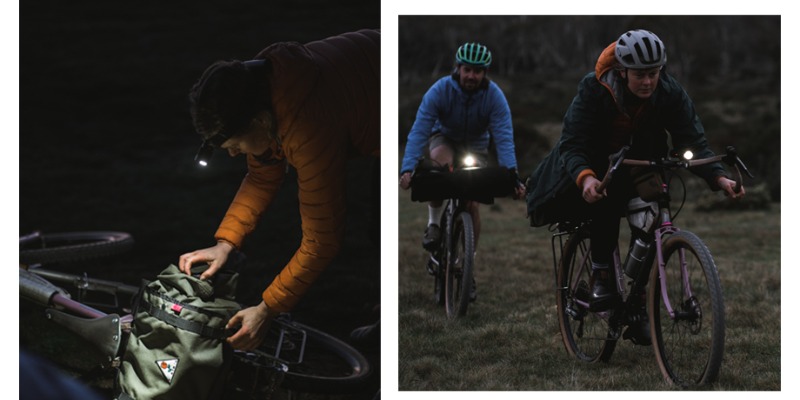Knog is a Melbourne-based company that has built up international success, by manufacturing a range of cycling, action sports, outdoor, and digital products and accessories which are now sold in over 50 countries.
Product engineer Malcolm McKechnie and industrial designer Hugo Davison set up Knog in 2002. They wanted to make a difference by adding value to a brand through good design where there were no existing major benchmarks, so chose the bicycle accessories market.
Setting Knog apart is the founders’ commitment to good design and quality, passion for innovation, sense of fun and refusal to conform. They want to be a fresh alternative making product development a key driver.
Knog’s products are designed in its Melbourne studio by a dedicated group of product designers, electronic engineers, web developers and graphic designers.
The value of IP
Knog knows the value of protecting its IP in Australia and overseas, and seeks to protect the creative effort in its products.
“Apart from beautiful design, inspiring products and cool marketing, IP immediately follows as our sustainable advantage with remaining a competitive brand,” Mr McKechnie says.
“Our patents protect the innovation and inventiveness that go into our products, our designs protect the unique appearance of our products and our trade marks help to identify the real products from the ‘Knog offs’.
“Early on, we decided to protect our IP as best we could. With IP protection you’re anticipating the future. We have trade marks on our brand, our sub-brands and many of our product names.
“Registered IP protection is important and it demonstrates that we are serious about our brand, products, marketing and making a difference. Without IP protection we would not have gained the support and growth we have today. This approach is even more important with our venture into the outdoor space with headlamps and power systems.”
Stamping out copies
Knog knows more product fakes are emanating from China and has a strategy to identify these manufacturers to try to stamp out the cheap copies. This strategy has seen several resellers ceasing to import these imitations.
“We all know that most of the products we buy and use today emanate from China. So we see most copies being produced in China and shipped to other countries where we sell our products," Mr McKechnie says.
“While the manufacturers may proudly copy products and see themselves as being quite clever in identifying a good copy product contender, they also stop selling product as soon as a design or patent document is waved at them.”
Enforcement strategies are a big issue and Knog has acted against a Chinese factory that distributed counterfeit copies of their bike lights. Legal action can be expensive so it concentrates on key markets, having learned a lot since engaging attorneys.
IP protection
Knog has found that protecting its IP is a powerful deterrent and good ammunition against copy cats. IP advice has been critical to Knog’s success.
“IP protection is a peculiar beast. You never know when you’re going to need to rely on it and it can be tough deciding which products and marks should be protected. We cannot protect everything, so we have to make a judgement on where we spend the IP budget,” Mr McKechnie says.
“Our trade marks help to identify the real products from the Knog offs."
“Early on we attempted to submit a patent application. We didn’t know what we were doing and didn’t understand the process. It soon taught us the importance of seeking expert advice – and getting GOOD advice. For example, don’t seek advice from a patent attorney that doesn’t specialise or have experience in those areas appropriate to your application.”
This article was originally published in ignite magazine by the Victorian Chamber of Commerce.
Please note: case studies are examples of the way some organisations have chosen to manage their IP. These studies don't provide advice and your experience may be different.

